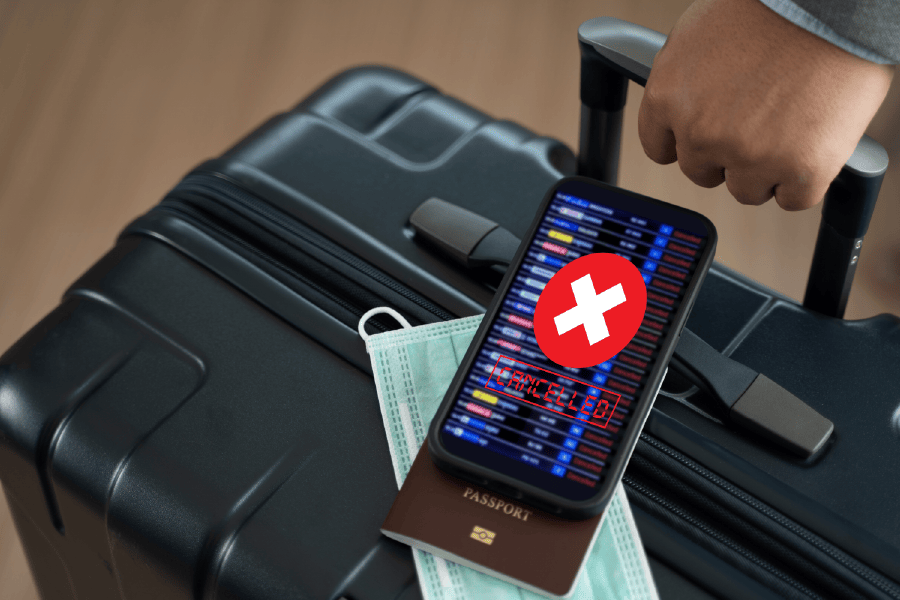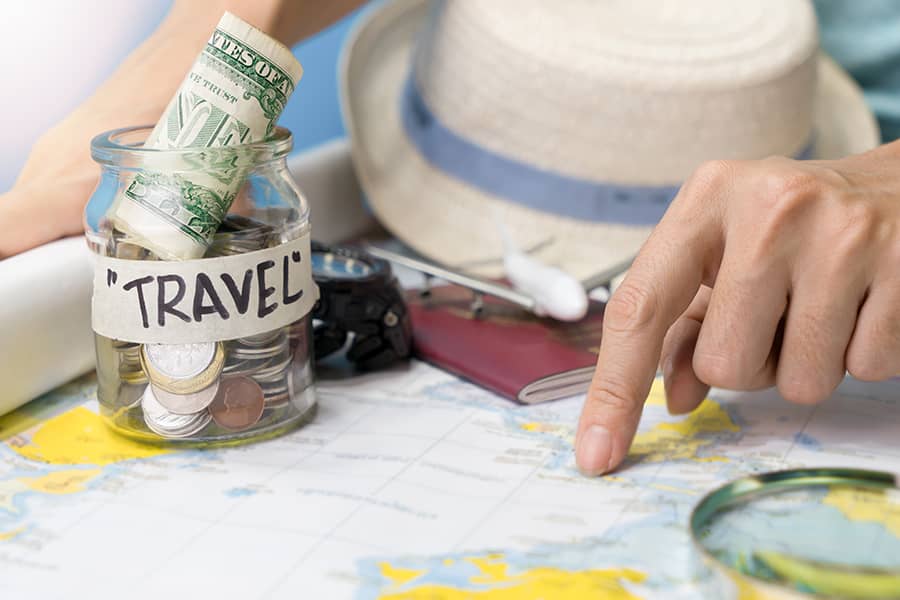8 Warning Signs to Identify a Travel Scam

Understanding Travel Scams
Travel frauds are an increasing issue for adventurers keen to discover new locales. With the growth of the internet and social media, swindlers have become more advanced in their approaches. Whether through misleading online promotions or false promises of too good to be true vacation packages, these scams can manifest in various ways, leaving travelers at risk of financial setbacks and disappointment. The emotional impact can be equally severe; a long-awaited journey can swiftly transform into a disaster when confronted with unforeseen expenses or fake services.
Grasping how these frauds function is vital for all travelers. Often utilizing high-pressure strategies that capitalize on urgency—like limited-time propositions or exclusive offers—scammers seek to circumvent logical decision-making processes. Awareness is your greatest protection; identifying common tactics, such as vagueness surrounding terms and conditions or unproven connections with trusted brands, can greatly lessen your likelihood of becoming a victim. As the travel environment changes, remaining educated and alert is crucial not only for safeguarding yourself but
- Unbelievably Low Prices
When a travel offer appears too fantastic to be authentic, it frequently is. Unbelievably low rates can spark enthusiasm, but they should also signal caution. Con artists capitalize on the appeal of a steal; their tactics involve presenting opulent lodgings or dream experiences at a mere fraction of the usual price. This method takes advantage of our instinct to grab hold of an exceptional deal, leading numerous travelers down a perilous route.
It’s crucial to examine what is included in these dirt-cheap rates. Are there concealed charges poised to disrupt your finances? Does the proposition lack fundamental components such as lodging or dining? A credible company will offer straightforward pricing and explicit conditions, making sure you understand precisely what you’re signing up for. Additionally, think about conducting your research—compare options across trustworthy sites and peruse feedback from fellow travelers who may have traversed that metaphorical tightrope before you. In the realm of travel fraud, discernment is your greatest weapon against those “unbelievable” offers
2. Pressure to Book Quickly
Pressure to make a quick booking is a clear warning sign that should trigger immediate concerns when arranging your next trip. Fraudsters frequently generate a false sense of urgency, tempting you with phrases like “limited time offer” or “only a few spots available.” This strategy exploits the fear of missing out, pushing potential targets into hasty decisions without properly assessing the offer or its credibility. Keep in mind, real travel deals can be easily discovered later; legitimate providers want you to feel knowledgeable and at ease with your choices.
Additionally, high-pressure methods may also appear as forceful phone calls from unknown numbers or unsolicited emails boasting exclusive discounts. These efforts are crafted to narrow your thinking and accelerate your reaction time—both significant signs that something might be amiss. Before falling prey to the ticking clock, take a moment to consider whether the deal genuinely seems too good to be true. Genuine travel experiences are founded on trust and openness; if you’re feeling hurried or pressured, it’s smarter to pause and conduct further research before
3. Lack of Professional Communication
One of the most revealing indicators of a possible travel scam is unprofessional communication. Scammers typically depend on vague messages filled with errors, poorly constructed sentences, and an overall casual tone that should alert you. Genuine travel services will correspond in a refined manner, giving clear details about their offerings and responding to any questions you might have in a timely fashion. If their reply seems hurried or dismissive, trust your instincts—these are not characteristics of trustworthy companies.
Additionally, be cautious of the methods used to reach out to you. Deceptive entities often utilize generic email addresses or social media contacts instead of official company domains. A credible agency will consistently emphasize professionalism in how they interact with clients and potential travelers. Seek personalized replies that demonstrate comprehension of your particular needs; if the communication feels mechanical or detached, it could be a deliberate strategy aimed at creating a false sense of security before absconding with your hard-earned money
4. Vague or Incomplete Itineraries
When evaluating a travel deal, focusing on the transparency of the itinerary is essential. Ambiguous or partial itineraries can serve as warning signs that there may be scams hidden beneath an appealing exterior. If a proposed journey fails to provide clear information about lodging, transportation timelines, or included activities, it could suggest that the planner is either unready or trying to mask additional charges and inferior experiences.
Additionally, reflect on how the itinerary corresponds with your preferences. A well-organized travel experience should align with your interests while offering thorough details about daily activities. When confronted with a vague plan, ask yourself if it truly represents a thoughtfully designed adventure meant for you—a daring escapade or a serene getaway—rather than simply being another generic package aimed at attracting naive travelers. Relying on your intuition in these instances can help protect your hard-earned funds and ensure your travels are unforgettable for all the right reasons
5. Poor Online Reviews and Testimonials
In the digital era, online feedback and testimonials greatly influence our travel choices. When providers display a plethora of negative reviews, it’s like a quiet alarm sounding in the background. Fraudsters often attempt to disguise their trickery with flashy websites and alluring deals, but nothing unveils their true intentions quite like customer feedback. A trend of unfavorable remarks not only highlights shortcomings in service but may also signal hazardous practices lurking underneath.
Take into account the context of these reviews—an array of grievances about unmet promises or concealed charges should prompt you to pause. Authentic travelers frequently share not just what went awry, but offer insights that illuminate warning signs overlooked by enthusiastic adventurers. Consider seeking out reviews on multiple platforms; discrepancies can indicate whether the complaints arise from widespread problems or if they are singular cases from disgruntled clients looking to express their frustrations. By doing so, you arm yourself with essential information needed to avoid potential traps and ensure your next trip is as pleasurable as anticipated—not tarnished by harsh realities obscured behind
6. Unsecured Payment Methods
Unsecured payment methods frequently act as warnings in the realm of travel fraud. If you are prompted to make payments via unorthodox channels—like wire transfers to personal accounts, prepaid debit cards, or even cryptocurrencies—it’s a definitive indication to tread carefully. These options lack consumer protection and provide minimal avenues for recourse if issues arise. Scammers capitalize on this anonymity, putting travelers at risk and without assistance when they inevitably become victims of deception.
In the current digital environment, a credible company generally presents a range of secure payment alternatives, such as credit cards or reputable payment processors like PayPal or Stripe. These platforms offer safeguards for customers through dispute resolution mechanisms that protect against fraud. If an apparently amazing deal tempts you into making untraceable payments, it is prudent to pause. Keep in mind that if it seems too good to be true—or if the security measures surrounding the deal seem questionable—it is likely wiser to heed your instincts and walk away rather than jeopardize your hard-earned money on
7. Evasive Customer Service Responses
One of the clearest indications of a possible travel scam appears when you notice evasive customer service replies. When your questions are met with ambiguous wording or a lack of authentic involvement, it could indicate that the company is more focused on diverting your worries than addressing them. For example, phrases such as We’re currently investigating this or That information isn’t available right now can raise concerns—genuine customer support teams offer details and clarity.
Additionally, if representatives dodge direct inquiries or insist on communicating exclusively through intermediaries, it often suggests a more significant problem. Scammers understand that establishing trust needs a personal touch, but their approaches typically depend on misdirection and unclear communication. A credible business should enable its personnel to meet your needs transparently. If every reply sounds rehearsed or formulaic, consider it a strong warning to rethink moving ahead; your peace of mind shouldn’t feel like an alternative in these discussions
8. Claims of Exclusive Deals or Offers
When it comes to travel fraud, one of the most captivating strategies is the allure of exclusive deals or offers that appear too good to be true. Scammers frequently exploit this craving for savings by creating messages about secret sales, limited-time promotions, or insider rates reserved for a select few. While everyone appreciates a fantastic deal, authentic opportunities seldom come with high-pressure tactics demanding quick action—an all-too-frequent approach among con artists.
Additionally, reputable companies may promote attractive discounts, but they usually support their claims with genuine transparency and verifiable information. If an offer unexpectedly lands in your inbox or appears solely on social media without any established trustworthiness behind it, handle it with caution. Always investigate ahead of time; ensure you directly reach out to reliable sources to verify the authenticity of any advertised offers before parting with payment or personal details. After all, in today’s highly interconnected world, a little diligence can protect you from falling prey to scams disguising themselves as incredible travel opportunities
Conclusion: Staying Safe While Traveling
In the era of digital technology, being well-informed is your strongest guard against travel scams. In addition to identifying red flags, travelers should arm themselves with knowledge about local customs, regulations, and destinations. Awareness can enable you to make wise choices, helping you traverse unfamiliar areas with assurance and insight. Think about utilizing trustworthy resources and applications that offer real-time information on safety concerns or scams reported in your selected region.
Furthermore, developing a sense of intuition may be as crucial as any set of preventive measures. Trust your gut—if something seems amiss or too good to be true, don’t hesitate to walk away or seek help from locals or fellow explorers. Connecting with online communities can also yield valuable insights into potential dangers while building relationships that could enhance your travel experience. Ultimately, by merging vigilance with awareness and preparation, you’ll not only protect yourself from scams but also elevate your journey with safer and more genuine experiences
Recent Posts
-
The Top Destinations to Visit in October, Based on Expert Recommendations
September 25, 2024 -
The Essential Lifestyle: Ways to Streamline and Organize Your Life
September 22, 2024 -
How to Journey on a Budget: Tips for Cost-Effective Adventures
September 21, 2024 -
The Growing Importance of Mental Health for Athletes
September 20, 2024




